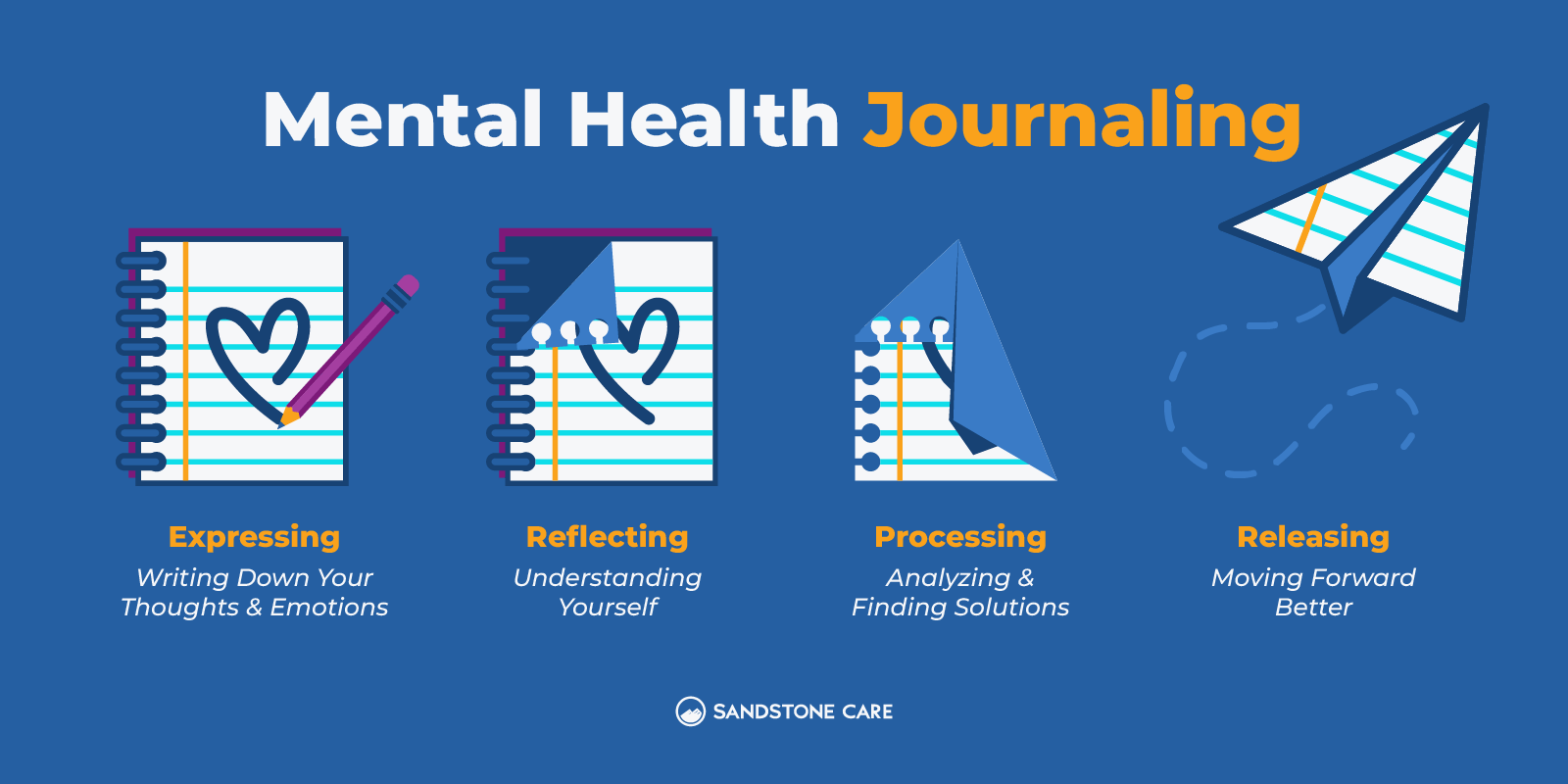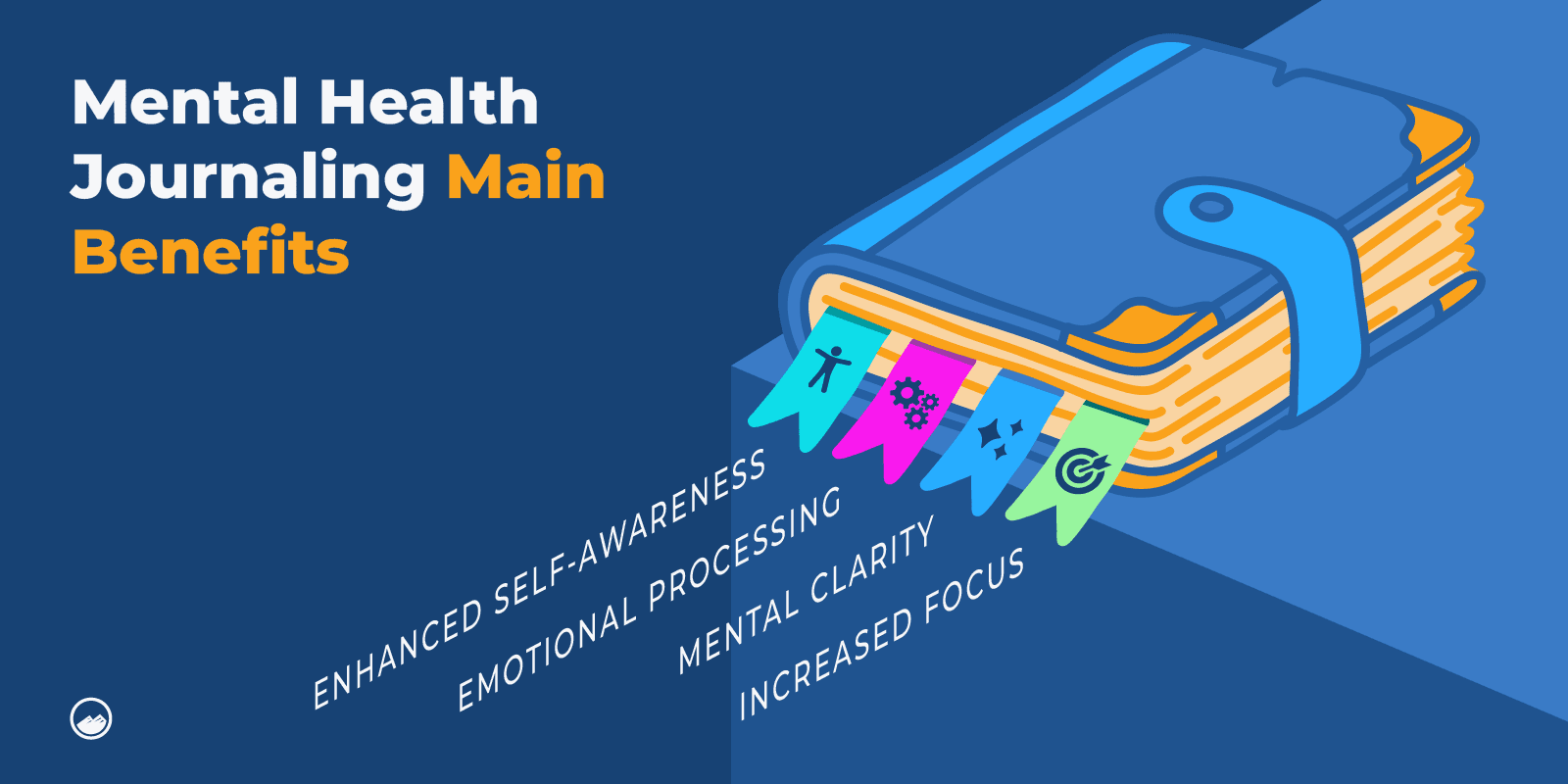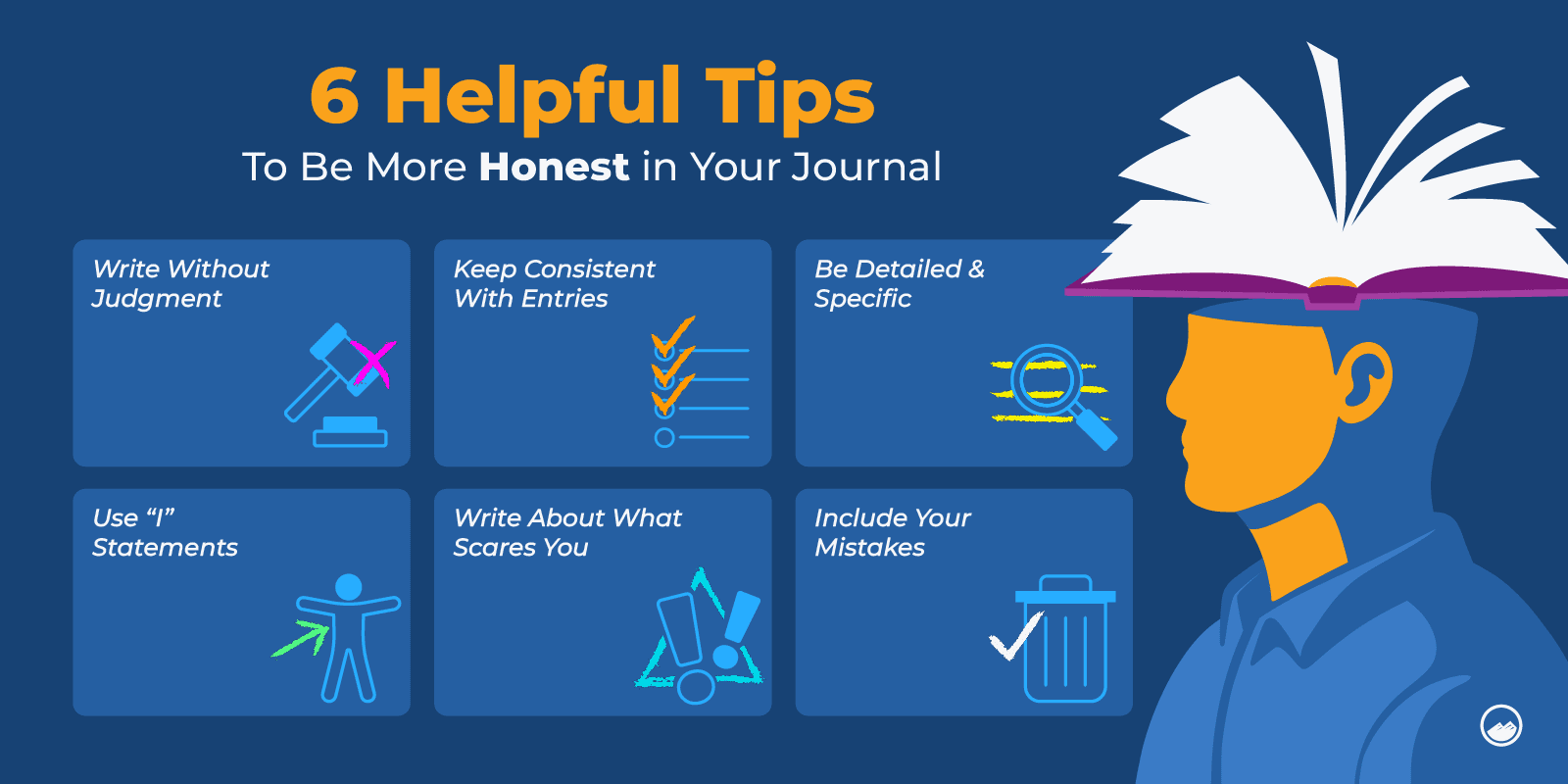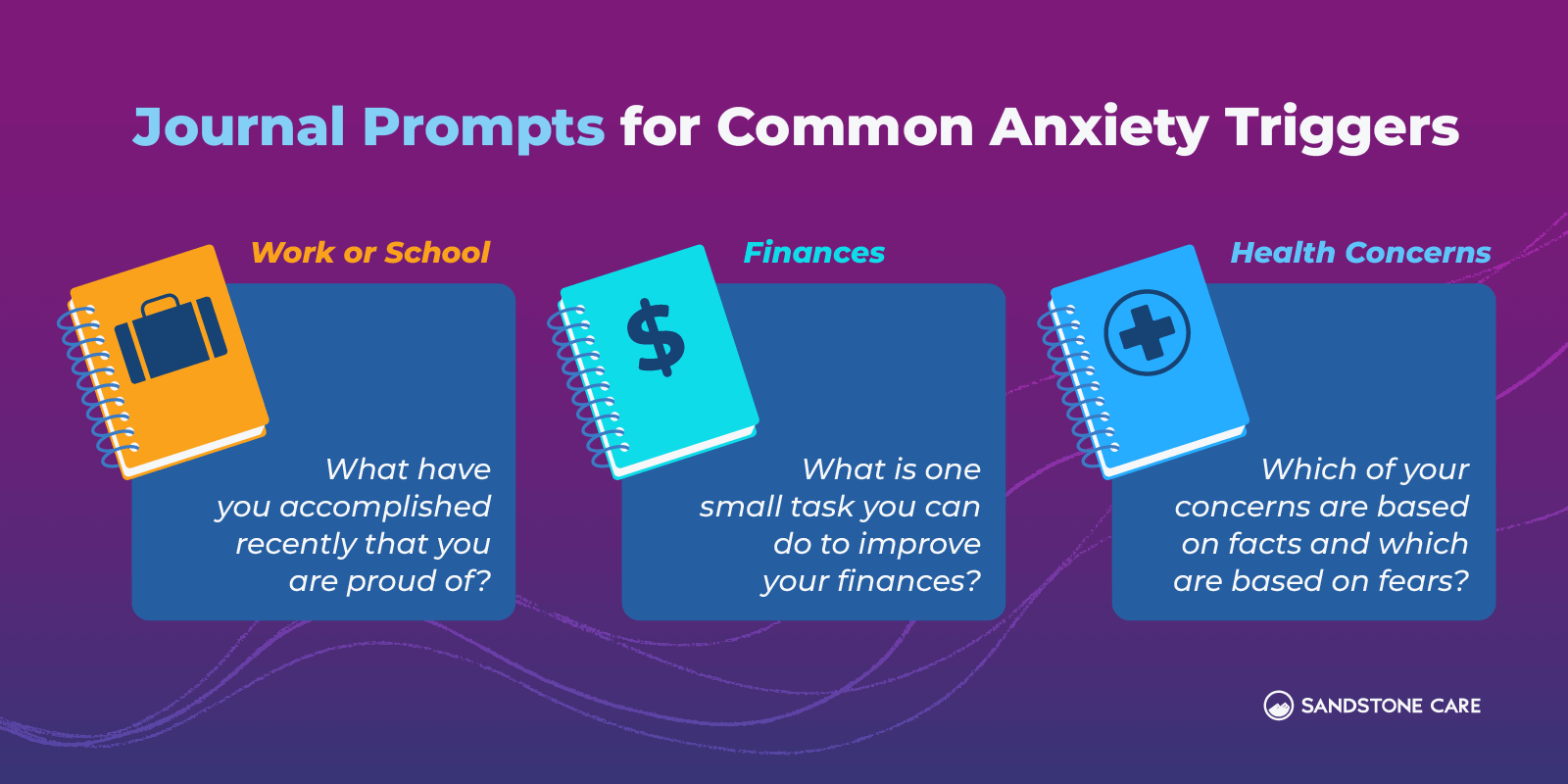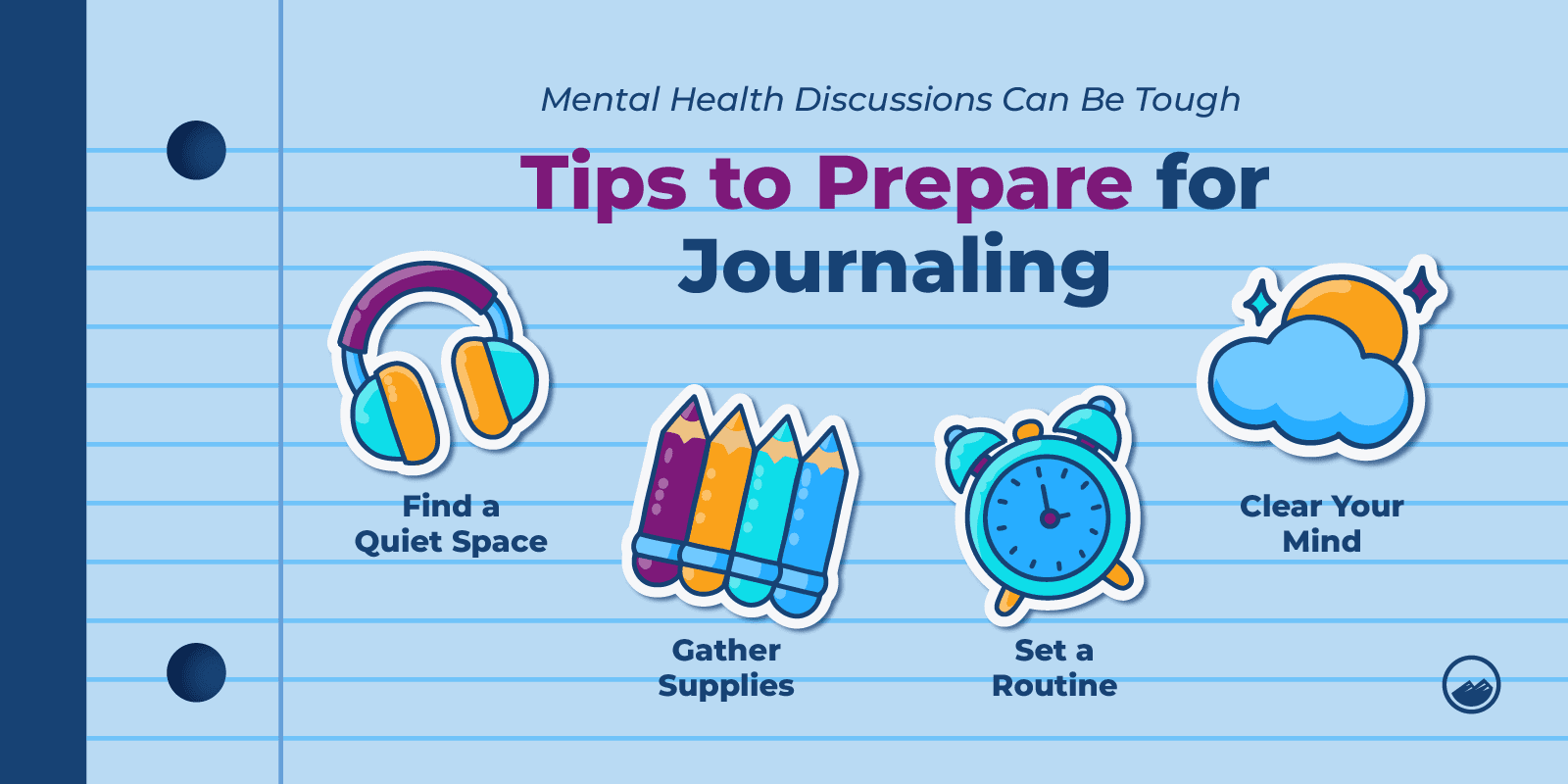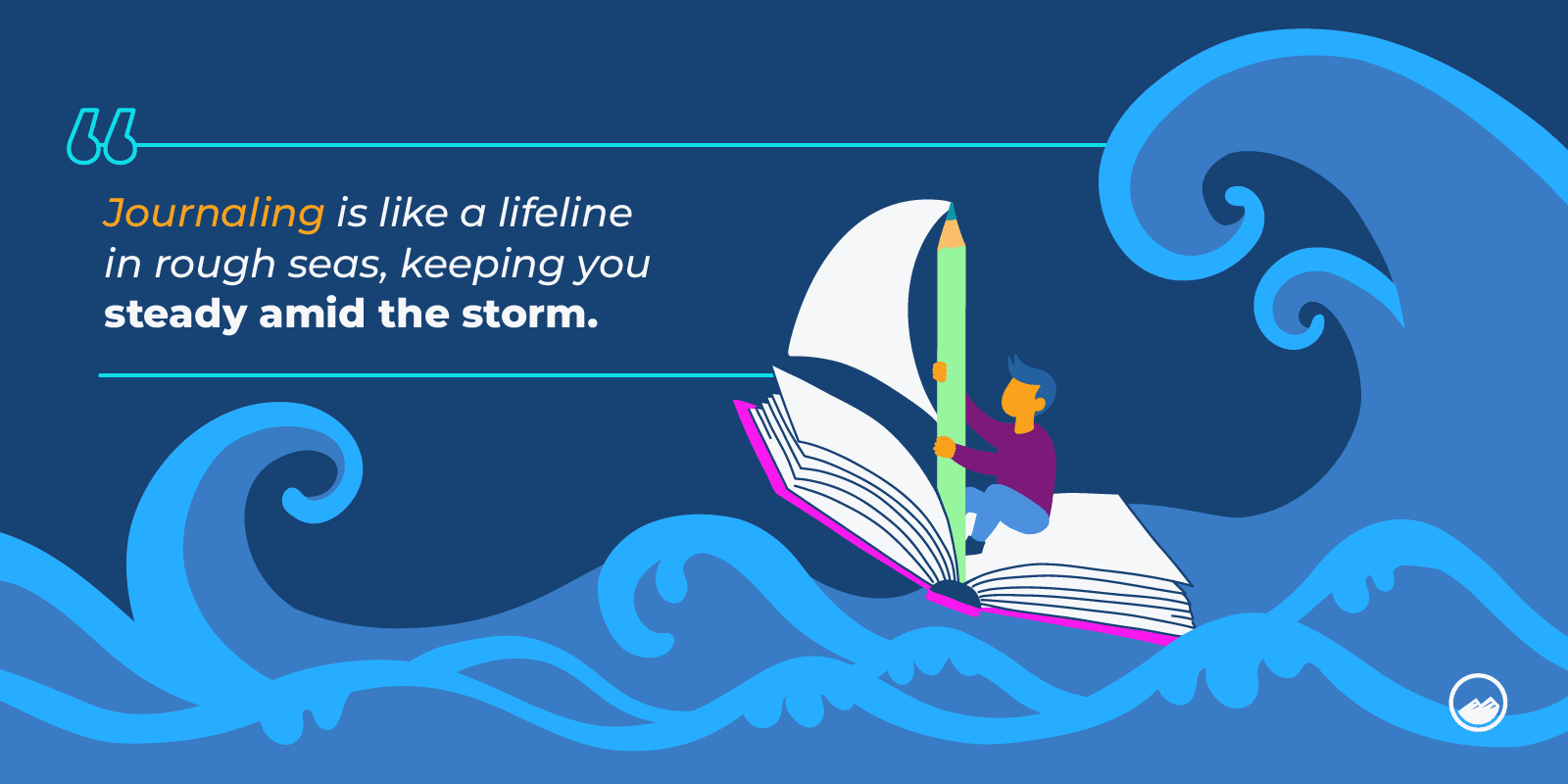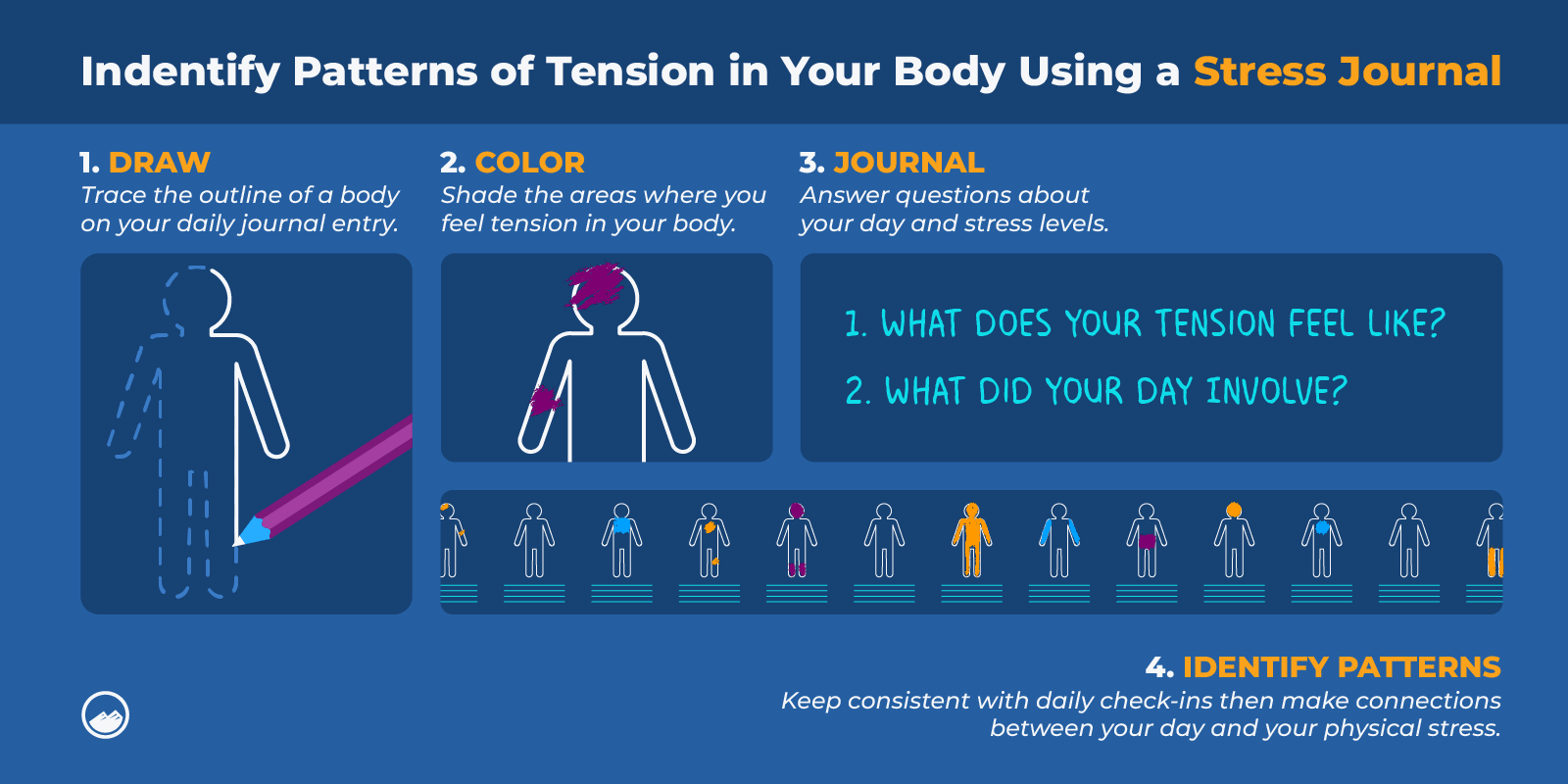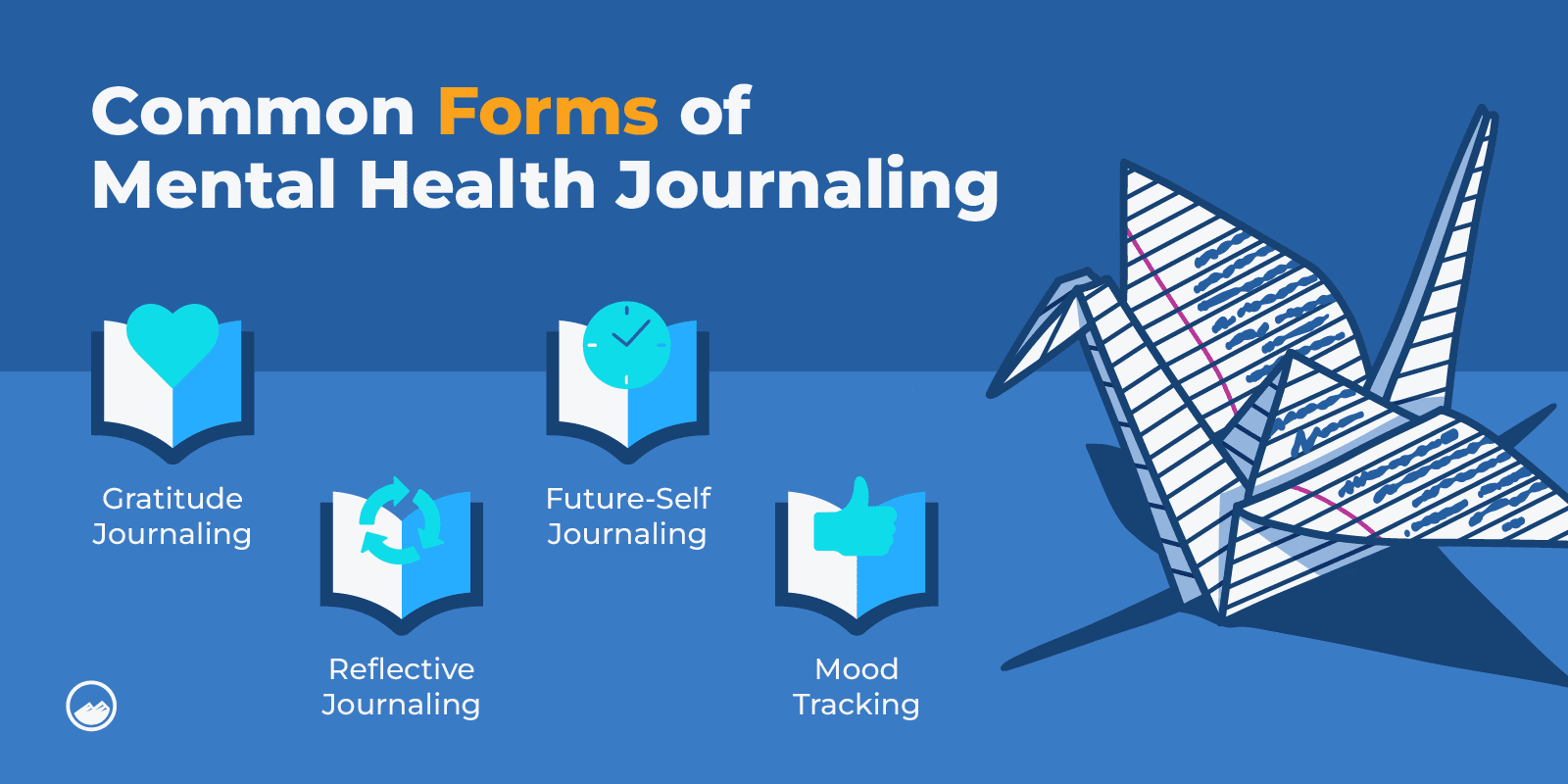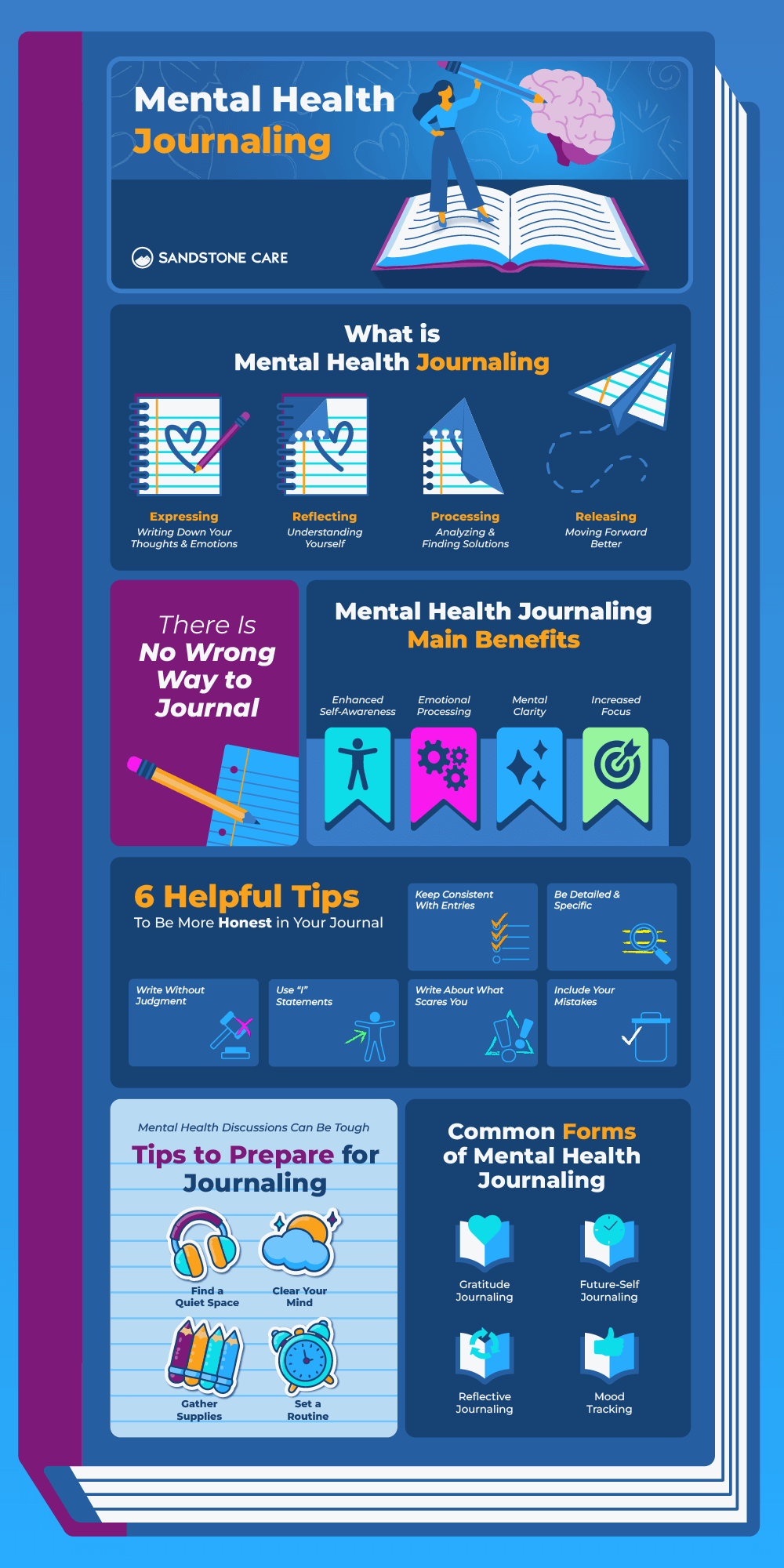How to Journal for Mental Health
How Do I Start Journaling for Mental Health?
Journaling can be an amazing tool for self-care and mental health.
The beauty of journaling for mental health is that there is really no right or wrong way to do it. Simply grabbing a pen and a notebook to jot down what you are feeling is a fantastic place to start.
There is no need to buy anything new, all you need is a couple of minutes and a place to write down your thoughts.
What Should I Put In My Mental Health Journal?
Your mental journal should include anything that helps you to process your emotions, such as events that have happened throughout the day, things that stress you out, and self-care activities that you have noticed make you feel better.
The special thing about your journaling practice is that it is entirely yours. You can write, draw, or even scribble if you find it to be helpful.
Writing about your experiences can help you process certain emotions. Some people even write letters to their past, present, or future self.
Don’t be afraid to experiment or get creative; no one is grading your mental health journal and there is no way to do it wrong.
Whether you use a guided journal, a bullet journal, or something else entirely, writing tools can help you to kickstart your mental health journey.
If you don’t know where to start, that’s okay too! We’ll give you plenty of ideas to get started in this post.
How Do You Journal When Overwhelmed?
When you are feeling overwhelmed, the act of writing can feel strange or even impossible, but by keeping your journal both physically and emotionally accessible you can help yourself to write under any circumstance.
Keep your journal somewhere you can access it easily, whether that is in a bag, a bedside drawer, or on your phone. The less digging you have to do for your journal the more likely you are to actually use it when you need it most.
The second step is to keep your journal emotionally accessible, which means approaching your writing without judgment. Don’t set high expectations or complicated themes to bend your entries into.
When you are overwhelmed, you aren’t going to be writing the next great American novel, and that is okay! The best entry is the one that actually gets written down.
Many people find that journaling when they are overwhelmed helps them process emotions, process them, or de-stress and return to the present moment.
Benefits of Journaling for Mental Health
Why Is Journaling Good for Mental Health?
Journaling provides many benefits for one’s mental well-being and physical health.
It can be incredibly valuable for any person in any circumstance, especially because it is entirely free and accessible to try.
Some of the benefits of journaling can include:
- Increased self-awareness
- Self-love and self-compassion
- Improved sleep
- Self-discovery
- Serves as a coping strategy for difficult feelings or experiences
- Personal growth
- Stress-relief
- Increased mindfulness
What Does Journaling Do to the Brain?
Studies show that positive affect journaling has positive effects on the brain including improved memory, boosted mood, better sleep, improved cognitive function, and decreased stress.
Positive affect journaling is an emotional expression-focused intervention that helps to regulate stress responses in the brain.
It is also associated with decreased mental distress and less depressive and anxiety symptoms.
Emotional Journal Prompts
How Do You Release Emotions Through Journaling?
Some tips for helping release emotion through journaling include:
- Find a quiet, private place to write
- Try to write for 15-20 minutes
- Allow yourself to write journal entries without holding anything back
- Incorporate journaling into your everyday life
- Use prompts to help you ask yourself questions you may not think of on your own
What Is the Journal Prompt for Emotional Vulnerability?
One way to start journaling for emotional vulnerability is to start by writing what vulnerability means to you.
For some people, emotional vulnerability might mean expressing feelings they usually keep hidden, like sadness, fear, or joy.
It can involve admitting to insecurities or fears, and sharing personal experiences that may evoke strong emotions.
This openness can feel risky, even when you are only trusting the page with your inner thoughts and feelings.
Some journal prompts for emotional vulnerability that you can ask yourself are:
- When was there a time in your life when you remember feeling vulnerable?
- Have your experiences with emotional vulnerability been good or bad?
- Do you try to stop yourself from feeling vulnerable with your loved ones?
- How did you feel after being emotionally vulnerable with someone?
- Have you ever held back on telling someone how you truly feel? Why?
- What is a positive side that you can see of being vulnerable?
- In what ways would you like to be more vulnerable?
What Are Journal Prompts for Emotional Detachment?
Emotional detachment can happen when a person is disconnected or disengaged from other people.
They might not engage in deep conversations with others, share their emotions with others, or be honest about their feelings.
Some journal prompts that may help with emotional detachment can include:
- Which emotions do I try to avoid?
- Are there certain people or contexts where I am more emotionally closed-off than others?
- Why am I trying to hide these emotions from other people?
- What do I fear when it comes to talking about emotions with other people?
- What is a negative experience I have had when I tried to show my emotions?
- What steps would I like to take to connect with my emotions and others?
What Should I Journal About for Anxiety?
For anxiety, you can write down specific things that cause you to feel anxious (triggers), and you can also write down how the anxiety made you feel and what helped you to come out of it.
Do not feel too worried about finding big explanations just yet, most of the time those realizations will come on their own as you write more and identify patterns between your entries.
While focusing on the content you are writing can be helpful, it’s important to remember that the very act of writing when you feel anxious is already helping you to interrupt the spiral of fear you are in.
Writing about anxious feelings may help a person work through anxious thoughts. It also gives them a place to reference, helping them learn more about themselves and restructure anxious thoughts.
One way to journal for anxiety is by simply writing down your thoughts and feelings when you are feeling anxious to help release them or let them off your chest.
Some daily journal prompts to use for anxiety can include:
- How does my anxiety make me feel?
- What are some things you can control about the current situation and things you can’t control?
- Where do you feel anxiety in your body?
- Write down the thoughts that are going on in your mind.
- How would you help someone else who is anxious?
- If you are thinking about the worst thing that can happen, what is the best-case scenario?
- When has there been a time when you had anxiety about something, but everything turned out better than you expected?
- What are some things that make you the most anxious?
- Is there something that you’re constantly anxious about?
- How is your anxiety trying to help you?
- Imagine if you didn’t have anxiety for one day; how would you go about your day? What would you do/not do? How would you talk to yourself?
- Make a list of your worries. Are they internal or external?
- How can you be more kind and patient with yourself when you are feeling anxious?
Trauma Journal Prompts
How Do You Journal Trauma?
Journaling trauma can feel difficult because it might bring up some feelings or memories that are difficult to talk about or think about.
There are a variety of different ways a person can journal for trauma.
Some tips to help with journaling trauma can include:
- Create a private, safe space where you feel comfortable writing about your feelings and experiences
- Take a few minutes to reflect and think about your experiences before writing
- Write in pen or without an eraser to remind yourself that you can write without censoring yourself
- Prioritize time for journaling by adding it to your daily routines
- Read back the things that you wrote when you feel ready to
- Create a plan that can help you manage or cope with difficult feelings when they come up. This may include simply allowing yourself to cry, practicing breathing exercises, or calling a friend to talk to when you are overwhelmed
- Take a step back if you start to feel that journaling is too much for you to handle in the moment, you can always come back later
What Do You Write in a PTSD Journal?
In a PTSD journal, you can write daily entries about your emotional state, physical sensations, and reactions to events.
Include reflections on trauma-related triggers, coping strategies you used, and positive experiences to balance the narrative.
Some prompts that may help with PTSD can include:
- Write about your traumatic experiences. Include as many details as you can and describe the way it made you feel mentally, physically, and emotionally.
- What causes you stress in your life now?
- What role has trauma played in your daily life? How does it impact the things you do or the decisions you make?
- Did your traumatic experience impact others?
- Have you learned anything from these experiences, both good and bad?
- What has been the hardest challenge in your life? How is it impacting you now?
- Is there something you need to let go of?
- What holds you back and keeps me from moving forward?
Journal Prompts for Overthinking
Does Journaling Help With Overthinking?
Journaling can be a beneficial way to work through overthinking because it forces you to articulate your emotions, face contradictions, find patterns, and even engage the part of your brain that focuses on reasoning.
When a person is stressed, anxious, worried, or just going through a whirlwind of emotions, journaling can help a person organize their thoughts, bring them to the present moment, and release those stressful thoughts onto paper.
How Do You Journal Intrusive Thoughts?
You can journal your intrusive thoughts by identifying what the thought is, describing how it makes you feel, questioning if they are honest or helpful, and finally reframing them as fleeting moments rather than something that defines you as a person.
Intrusive thoughts are unwanted and disturbing thoughts that come to mind and can make people feel uncomfortable, scared, or stressed.
These thoughts can commonly occur as symptoms of post-traumatic stress disorder, bipolar disorder, obsessive-compulsive disorder, and anxiety disorder.
Journaling can help reduce intrusive thoughts or release some of the stress and discomfort that comes with it.
What Should I Write In My Stress Journal?
Some questions you can ask yourself when writing in a stress journal can include:
- What are some of the things that make you feel the most stressed?
- Where do you feel tense or stressed in your body?
- When do you feel the most safe and at ease?
- What takes up a lot of my energy or makes me feel burnt out or exhausted?
- How does stress impact my relationships and everyday life?
- Who in my life handles stress in a way that I admire? What can I learn from them?
Journal Prompts for Depression
What Type of Journaling Is Best for Depression?
Gratitude journals and affirmation journals are helpful types of journaling for depression.
A gratitude journal is where a person can record and reflect on things for which they are grateful. This can help with symptoms of depression by reminding them of things that make them happy, worthy, safe, and calm.
Affirmation journaling involves positive statements and self-talk that you can incorporate into your everyday life. Examples of affirmations that people use can include, “you are worthy,” “you are enough,” or “you can let go of anything that isn’t serving you.”
Many types of journaling can be helpful for depression. Sometimes, just keeping a journal and writing in it consistently, daily, or weekly, and writing about your day or how you feel can help with the symptoms of depression.
Can Journaling Help Dissociation?
Journaling may help with dissociation by bringing you to the present moment and increasing your self-awareness.
Journaling can also help you to reflect and remember your experiences, which can help you make sense of the events that may be causing you to dissociate.
What Are Some Journaling Prompts for Depression?
Some journaling prompts for depression can include:
- Are you thinking about yourself kindly? How can you show yourself patience today?
- Where do you feel your emotions in your body?
- Write about a time when you felt happy or at peace. What do you remember when you think of this moment?
- Is there something you feel you need more of in your daily life? How can you start to incorporate this into your daily routine?
- What is something you look forward to?
- When was the last time you did something nice for yourself?
- If there was one thing you could change about your life, what would it be? What can you do to start small with these changes?
- Is there something you grieve? Whether it is a person, a relationship, a specific time in your life, etc.
- Write about a time when you have been resilient or when you have overcome challenging symptoms of depression.
- What is one way you can practice self-care?
- Are there challenges/difficulties you need support with?
- How long have you been feeling this way?
- What is a healthy way you can cope with the feelings you have?
- Write down 3 things you are grateful for today.
- What is something you would tell your younger self today?


